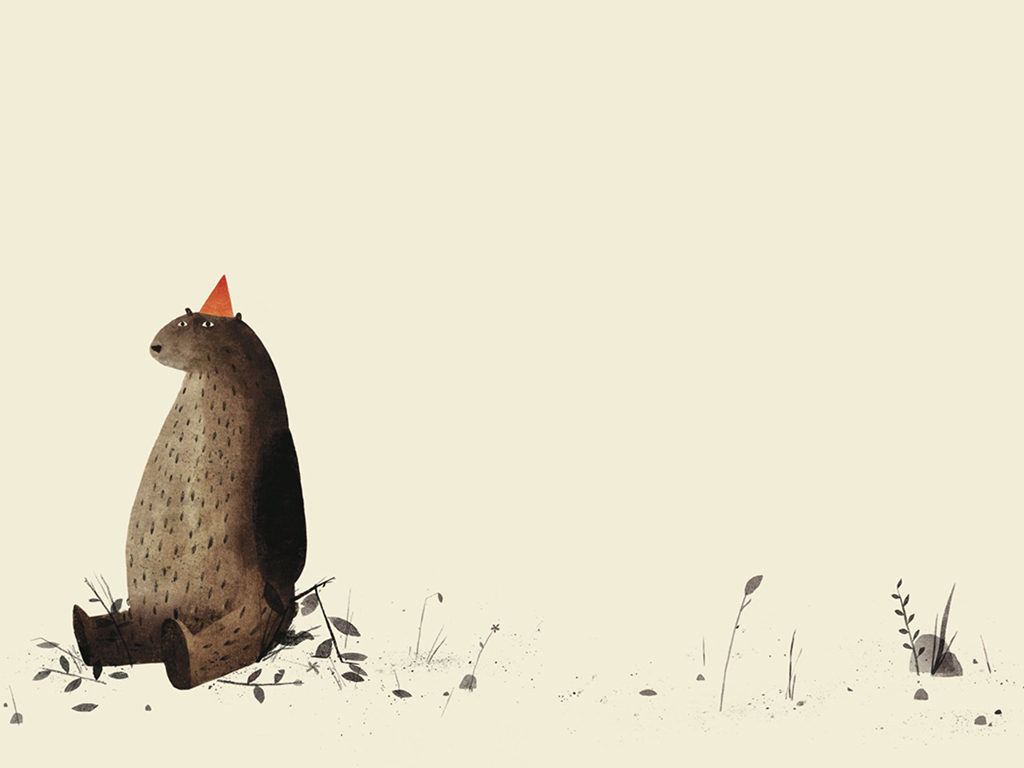
In 2011 the Canadian author and illustrator Jon Klassen sacrificed a rabbit in the name of philosophy and art. In his best-selling children’s book I Want My Hat Back, a seemingly lugubrious bear wanders a pastel-coloured landscape populated by a fox, a frog, a rabbit, a tortoise, a snake, an armadillo and a moose, politely asking each in turn if they have seen his missing headgear (each animal replies in the negative). I’ve encountered few works of art – whether aimed at adults or children – that have shocked me as much as this, with its denouement in which (spoiler alert) the bear realises that the bunny is a fibber and the hat-thief – and he eats it. We never see the act, but when a squirrel asks about its rabbit friend’s whereabouts, the bear too is revealed as a hypocrite and liar: “I haven’t seen him. I haven’t seen any rabbits anywhere. I would not eat a rabbit. Don’t ask me any more questions.”
Thanks to my 14-month-old son I have read I Want My Hat Back more times than any other book, yet never tire of it. At just 16 spreads and 253 words, it’s a bleakly hilarious masterpiece of minimalist plot and maximalist tension. Klassen’s genius is in not giving everything away as he passes control of his narrative over to parent and child. I wonder how many times he must have practised doing the eyes of each gently painted creature before he got it right, for in their blankness they contain multitudes: sadness, anger, guilt, idiocy, ambivalence, hatred. Interpreting this in choice of accent and tone of voice is a joy: my deeply-voiced bear speaks slowly until he breaks down into booming rage, the frog is French (sorry), the moose Scottish, the turtle from deepest Devon, and the conniving rabbit usually a toffee-nosed drinking pal of Bertie Wooster.
[See also: The best children’s books for summer 2022]
As our reading aloud enriches the narrative, we’re drawn deeper into the ambiguous ethics, jealousy, stealing, lying, attachment to possessions and the motivation for the bear’s explosive vengeance. It’s so easy to become Klassen’s characters that they quickly become us. Like Samuel Beckett meets The Sopranos for pre-schoolers, I Want My Hat Back illuminates our human condition in such a brutally pure way that it ought to be seen as a truly great work of literature. Moreover, it is a liberation from the moral absolutism that currently curses grown-up culture, not to mention a gnarly counter to the twee Instagram aesthetics often associated with parenting. And, although it might be taboo to say it, full-time childcare can be deeply boring: those long hours when dawn is still to crack the curtains are enlivened by the spilling of a rabbit’s blood.
What is my boy’s motivation when he holds up I Want My Hat Back and says “Da!” until I read it to him? Perhaps he just likes the shapes of the animals, or the vibration of my body as I cuddle him and thunder “You! YOU stole my hat!” Our copy is already frayed around the edges, and by the time he tires of it the cover will be broken, pages scuffed and loose. But in that wear and tear will be recorded, I hope, moments of profound revelation, that a bear and a rabbit and a pointy red hat might explain to him the flaws that make us who we are.
[See also: The best children’s books for spring 2023]





